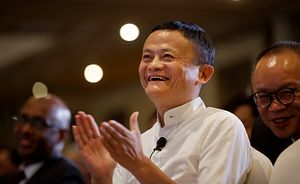The close of 2020 has not been the blockbuster that Jack Ma’s Ant Group had hoped it would be. In November, the fintech company’s highly anticipated initial public offering for Hong Kong and Shanghai markets was suspended at the last minute. And in the past few weeks, Chinese regulators have escalated their concerns, launching an antitrust investigation into retail giant Alibaba for monopolistic practices. Regulators also intend to set up a “rectification” plan for Ant Group, calling on the conglomerate to return to its roots of online payments and boost transparency of its transactions.
Ant Group has grown into a financial powerhouse in China, with operations ranging from online payments via Alipay, asset management, insurance, and lending. The regulatory issues raised by Chinese authorities include Alibaba’s practice of forcing merchants to exclusively sell and distribute products on their platform over competitors such as JD.com or Pinduoduo. As for Ant Group, regulators have levied concerns over originating consumer loans and their subsequent sale to banks without the firm carrying any of their own risk. China’s central bank also accused the firm’s corporate governance of being “not sound,” of “having little legal knowledge and turning a blind eye to compliance requirements.”
Following the late December news about Alibaba, the company, which opted to go public on the New York Stock Exchange in 2014, saw its U.S. stock value sink sharply and then flatten, nearly erasing all its stock market gains in a challenging year for economic growth in light of the impact of the COVID-19 pandemic. Alibaba’s Hong Kong-listed shares also tumbled.
Chinese mainland stock markets have typically been employed to raise capital for state-owned enterprises, while private firms seeking foreign investment sold shares in Hong Kong, New York, or other offshore exchanges. Ant Group’s thwarted IPO would have been dual-listed in Hong Kong and Shanghai and was set to break records – it was expected to raise more than $35 billion, which would likely have pushed the company’s value to more than $300 billion.
Ma got himself into hot water in October 2020 at a conference with Communist Party elites, where he chastised China’s top state banks for stifling innovation because of their “pawn shop mentality.” Despite a subsequent apology, the latest moves by regulators seem to confirm that Chinese officials have soured on Ma.
The narrative surrounding Jack Ma in China also appears to be shifting, in tandem with his companies’ woes. Ma, a former English teacher turned internet tycoon, once represented the pinnacle of private opportunity in China. He has built his firms into iconic symbols of China’s technological promise and advancement. Ma has not shied from the public eye, embracing his celebrity status and dabbling in acting, singing, art, and his now notable 2017 dance routine. Still, the entrepreneur has also launched high-profile philanthropic initiatives, aimed at bolstering rural education in China and developing entrepreneurship in Africa. However, while some may still hope to follow in Ma’s footsteps, others have come to see him in a less appealing light – an example of dwindling opportunity and the privilege of extreme wealth in an increasingly unequal society.
Although it is nearly impossible to disentangle the political and economic motivations behind the targeting of Ant Group and Jack Ma, the central government’s scrutiny of Ant Group does raise a number of questions for China’s economic and technological innovation. Jack Ma’s e-giants are not only big players in their own right, but they are also an important source of capital for startups across a wide range of internet-based sectors. Will China be poised to effectively compete internationally in technological innovation and advancement if top investors are hamstrung?
Nevertheless, others have suggested that increased regulation of Ant Group will ultimately benefit the Chinese economy. “In general, China’s regulation of Ant Group is good news for investors in the long run. It will contribute to stabilizing expectations and creating a favorable business environment, although it is not a liberalization policy in the traditional sense,” Pan Yuanyuan, an associate research fellow of the Institute of World Economics and Politics, part of the Chinese Academy of Social Sciences, wrote for The Diplomat.
As the Chinese economy seeks to bounce back in 2021, there is no doubt that internet-based firms will play an outsized role as they occupy a fundamental place in Chinese daily life. Regulation of China’s internet industry has been limited, other than the government’s censorship of content. The targeting of Ant Group and Alibaba may on the one hand be a move to quell Ma’s influence, and yet on the other hand, it may be an early indicator of the government taking on a greater supervisory and guiding role in fintech services.

































